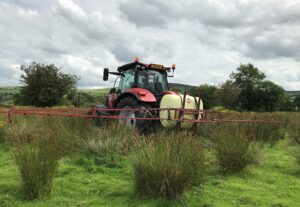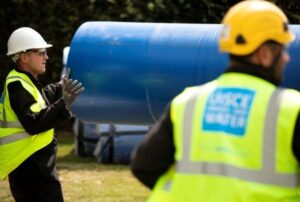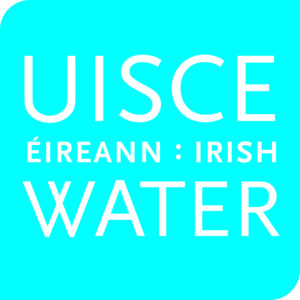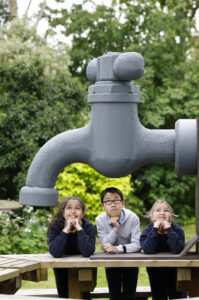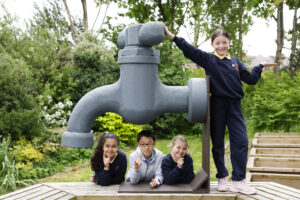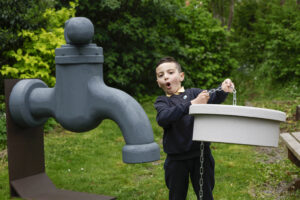1 July 2022 – Irish Water has launched a new Experience Based Accreditation Scheme that will be available for Experienced Contractors in Monaghan. The scheme will accredit Experienced Contractors to deliver new water services infrastructure in public roads for housing developers.
This is the latest initiative as part of Irish Water’s commitment to support the delivery of housing across Ireland. The scheme supports the efficient delivery of essential water services infrastructure in the public road by Experienced Contractors while ensuring best practice procedures and standards.
It follows the successful rollout of Irish Water’s self lay in the public road programme, whereby developers can deliver water and wastewater infrastructure in the public roads to service new housing developments. The new scheme, which has been launched 18 months ahead of schedule, recognises contractors’ adherence to Irish Water’s Standard Details, Codes of Practice and Quality Assurance procedures. These best practice procedures and standards have been developed by Irish Water to prevent a reoccurrence of legacy issues that exist across the country.


Welcoming the self-lay programme and the new accreditation scheme, Darragh O’Brien TD, Minister for Housing, Local Government and Heritage, said: “This latest initiative from Irish Water is another fantastic step forward in ensuring housing developments are completed efficiently across the country. I’m delighted to see such support for my Department’s Housing For All strategy, and to see Experienced Contractors across Ireland support the efficient delivery of homes. Irish Water listened to industry calls and responded quickly. Through the Housing For All strategy, my Department aims to see an average of 33,000 homes provided each year to 2030, and to know these homes will be completed as efficiently as possible is a fantastic assurance.”
The scheme, which is also supported by the Construction Industry Federation (CIF), the Irish Homebuilders Association and Commission for Regulation of Utilities, is the latest in a number of initiatives Irish Water has implemented to support Government’s Housing For All strategy.
Other initiatives include the publication of water and wastewater capacity registers which give an indication of the capacity of water and wastewater treatment plants all around the country, making it easier for developers and local authorities to prioritise areas with services.
As part of its commitment to open communication, Irish Water has also hosted several webinars for industry players to explain the application process and to highlight issues that may cause delays in the process.
The utility continues to support the housing industry through its dedicated connections and developer services team which offers a range of resources and support material, including extending a helping hand through the entire process from housing development pre-planning stage right through to construction.
These initiatives have resulted in strong progress being made in the delivery of housing, with over 32,000 housing connections offered by Irish Water in 2021.
Yvonne Harris, Irish Water’s Housing Programme Director, said: “We are committed to supporting Government’s drive in developing more homes across the country and ensuring these homes can be completed efficiently. We’ve launched our new Experienced Based Accreditation Scheme following calls from industry where, following a series of webinars with industry members, many highlighted the need for self-lay of water services infrastructure in public roads for new housing developments. Irish Water listened and is now ensuring that Experienced Contractors across every county in Ireland can become accredited to deliver new water services infrastructure in public roads for new housing developments.

“We have ensured our Experience Based Accreditation Scheme is easy and hassle-free to register for, and we’ve already seen strong interest from applicants. It ensures safe and reliable water services will continue to be provided to new home buyers and existing residents, now and into the future.”
James Benson, Director of Housing, Planning & Development with CIF, added: “CIF welcomes this excellent initiative by Irish Water which will facilitate us to deliver housing in a timely and efficient manner. Our members are committed to meeting the highest standards in the construction of housing and associated infrastructure. This Experience Based Accreditation Scheme recognises this and supports the ongoing development of expertise in the water industry by developers and contractors through accreditation.”
Shane Carty of Carty Contractors, a contractor who participated in the pilot self lay programme, said: “We welcome the proposal by Irish Water to establish an accreditation scheme that will recognise the positive engagement by Contractors with Irish Water’s requirements since 2014


